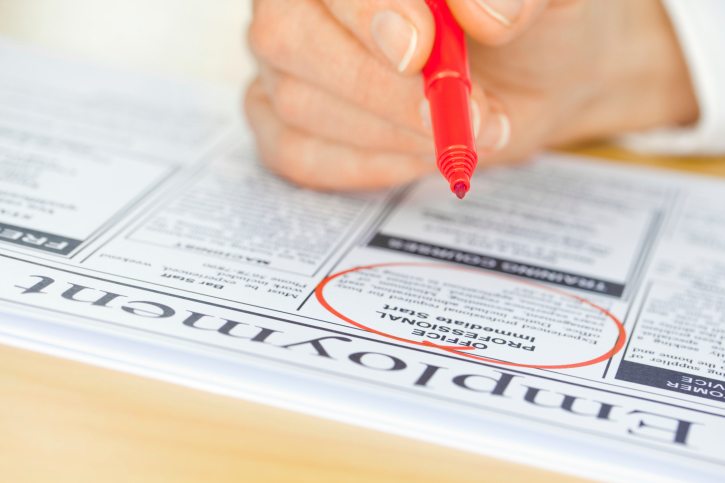
Monmouth University Poll: Rising Prices Are Top Kitchen Table Worry
Partisanship has more effect than income on driving negative trend
On Dec 8, 2021Paying everyday household bills, and inflation specifically, top the list of concerns American families say they currently face, with the number saying it is easy for them to pay grocery bills dropping by 13 points in the past two years. The latest Monmouth University Poll finds nearly half the public feels federal government actions have made things worse regarding their top household concern, although the downward trend on these issues is driven more by partisan identity than by income level. Other poll results show that Joe Biden’s spending plans remain popular even though the president himself is not.
About 3 in 10 Americans name either everyday bills (15%) or inflation specifically (14%) as the biggest concern facing their family right now. This far outpaces Covid (18%) or any other single issue as the top kitchen table worry in the country. This past summer, far fewer Americans named either rising prices or household bills as their biggest concern (16% in July 2021) and the amount of concern over household bills was even smaller just over a year ago (8% in August 2020).
“Concerns about inflation have taken center stage in discussions around America’s kitchen tables. And, as one would expect, many are placing the blame squarely on Washington,” said Patrick Murray, director of the independent Monmouth University Polling Institute.
Regardless of which issue they name as their top concern, nearly half of the public (46%) says that concern has been hurt by federal government actions since the beginning of the year. Back in July, 34% felt that the federal government had hurt their family regarding their top concern at that time. The largest jump in those saying they have been hurt by government actions has been among Republicans (up 24 points to 82%), while there has been less movement among independents (up 6 points to 47%) and Democrats (up 3 points to 10%).
The number of people who say their family’s top concern has been hurt by the federal government is higher now than at any point during Donald Trump’s administration (which ranged from 37% to 42% between 2017 and 2019) and nearly matches the first time Monmouth asked this question during Barack Obama’s presidency (47% in January 2015). The number who say their family’s top concern has actually been helped by the federal government stands at 25%. While this is down from July (31%), it is similar to poll results from January 2017 (27%) and higher than other polls taken during both the Trump and Obama years (14% in 2015, 2018, 2019).
The number of Americans who say it is at least somewhat easy for them to pay their grocery bills (56%) has dropped by 13 points in the past two years (69% in May 2019). This shift is far greater than declines in reported ease of paying for health care deductibles (down 6 points to 42%), taxes (down 6 points to 45%), paying for housing (down 6 points to 40%), and paying for health insurance premiums (down 1 point to 46%).
The biggest drop in self-reported ease in paying grocery bills is actually related more to partisanship than income. By household income level, the number of people earning less than $50,000 who say paying for groceries is easy for them (44%) has dropped by 10 points in the past two years. It declined by 16 points among those earning between $50,000 and $100,000 (59%) and by 11 points among those making $100,000 or more (72%).
Looking at partisan shifts, however, finds just 43% of Republicans who say it is at least somewhat easy for them to pay grocery bills – a dramatic plunge of 38 points from May 2019. In comparison, the shift among other groups has been relatively minor – down 10 points among independents (57%) and up 7 points among Democrats (67%). Put another way, two years ago Republicans were 21 points more likely than Democrats to say that paying grocery bills was easy for them. Today, they are 24 points less likely.
“There has always been something of a partisan divide on the question of making ends meet based on who controls the White House. But the huge shift in this poll, driven mostly by Republicans, begs the question of whether we are measuring the primacy of partisan identity more than an accurate self-assessment of economic conditions at home,” said Murray.
Turning to Washington, the president’s large spending plans remain broadly popular. Support for the Bipartisan Infrastructure deal (BIF), which was signed into law last month, stands at 66%, similar to November and down just a few points from prior polls. Support for the Build Back Better (BBB) plan to expand access to health care, college, paid leave and other services remains fairly steady at 61%. Furthermore, 56% of Americans support the climate change funding part of the BBB bill (compared with 60% in November). Partisan support for each of these three spending elements stands at 92%-95% among Democrats and at 56%-67% among independents. Republican support, however, ranges from only 12% to 31% depending on the particular spending element. Compared with Monmouth’s poll last month, Democratic support is stable, Republic support has declined for all three spending elements, and independent support varies across a slightly wider range depending on the specific spending element.
The public is divided on whether significant reductions made to the BBB plan’s size during negotiations between Congressional Democrats and the Biden administration are a good thing (41%) or bad thing (45%). Most Republicans (55%) see these cuts as good and most Democrats (63%) see them as bad. These results are basically unchanged from last month.
The BBB bill was passed by the House and is awaiting action in the Senate. Just over 1 in 4 Americans (28%) say that enacting this into law should be Congress’s top priority. One-third (33%) say that this legislation is important but there are more pressing matters for Congress to address, 9% say it is not really important to take up this bill right away, and 26% are opposed to its passage at all.
“Popular, but not a priority. One of the political problems with Biden’s spending plans is that they don’t seem all that relevant to the vast majority of Americans,” said Murray.
Biden currently holds a job performance rating of 40% approve and 50% disapprove. This marks another downward tick in his approval number since hitting 54% in April, before dropping to 48% in June, 46% in September, and 42% in November. The percentage of Americans who say the country is headed in the right direction (30%) is similar to poll results from the fall, although this metric reached as high as 46% early in Biden’s term (April 2021).
The poll also finds the public’s job performance rating for Congress stands at 23% approve and 66% disapprove. Congressional approval has ranged between 18% and 23% since the summer, although it did register as high – “high” being a relative term – as 35% approval in April.
The Monmouth University Poll was conducted by telephone from December 2 to 6, 2021 with 808 adults in the United States. The question results in this release have a margin of error of +/- 3.5 percentage points. The poll was conducted by the Monmouth University Polling Institute in West Long Branch.
To access more business news, visit NJB News Now.
Related Articles:





